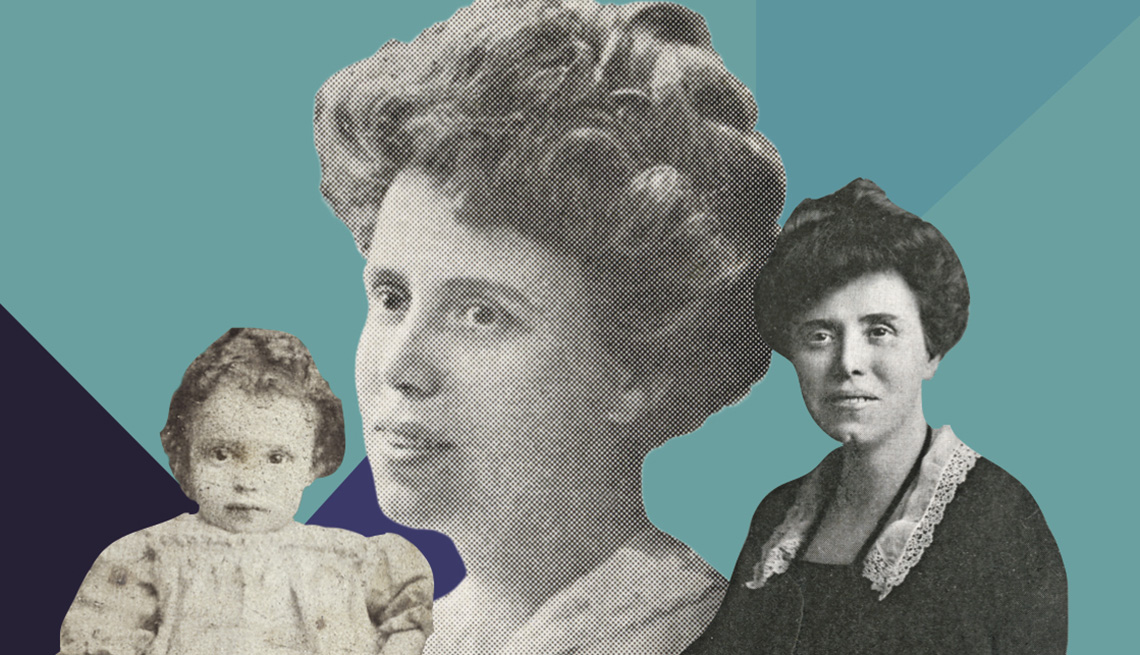AARP Hearing Center
Ethel Percy Andrus was born in the 19th century and helped transform the 20th. The indomitable woman who would go on to found AARP was born in San Francisco in 1881 to parents who instilled in her and her older sister, Maud, a love of learning and a progressive spirit. Those characteristics would drive her throughout her 85 years, from her days as a young teacher and a high school principal to later in life, when she made it her mission to improve the lives of older Americans.
Her education begins
When Andrus was 5 years old, her parents, George and Lucretia, moved their young family from California to the Windy City, where George attended law school and the girls began their own schooling. It was a tumultuous time — the famous Pullman Strike of 1894 threw Chicago into chaos after federal troops crushed the railroad workers’ uprising — with vast gaps between the Gilded Age millionaires and the poor. As a young girl, Andrus was moved by those at the top who tried to spread the wealth: She revered the late Peter Cooper, a wealthy industrialist and inventor turned philanthropist who founded a New York college offering free night classes to everyone, regardless of race or background. What made a great impression on her, she said later, was “his love for, and service to, folks whom he might never have known.”
Andrus was among the very few women who went to college in 1900. She spent a year at the University of Chicago before joining a teacher training program at an affiliated school, the innovative Lewis Institute on Chicago’s near-West Side. After earning a four-year degree in 1903, she immediately joined the faculty and taught English and German there for seven years — a busy, exciting time for the young teacher.
While working at the Lewis Institute, she discovered Hull House, a settlement house cofounded by the heiress Jane Addams. It was located in an impoverished neighborhood where immigrants (Italian, Irish, German, Greek, Bohemian, Russian and Polish) could find support and a place to live. Hull House offered night-school classes for adults in subjects such as English and citizenship. Andrus volunteered there and, she would later recall, “I learned there to know life intimately and to value folks of different races and creeds.”
She remembered her time in Chicago as “happy and wonderful,” but that part of her life came to an end in 1909, when she and her father grew ill (records don’t specify the nature of the illness). The family moved — temporarily, they thought at the time — to a small town in Southern California, Santa Paula, so the two could recover. Andrus rebounded, but her father grew worse. He was diagnosed with atrophy of the optic nerve, a progressive disease.






























































